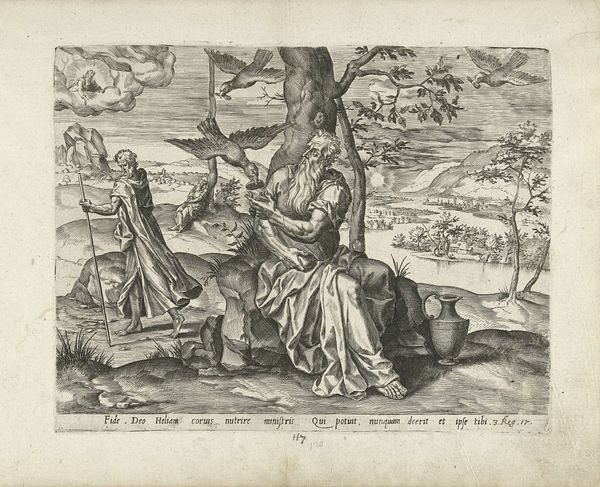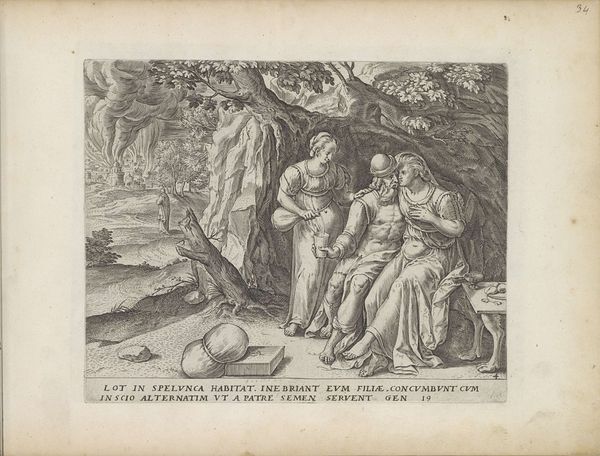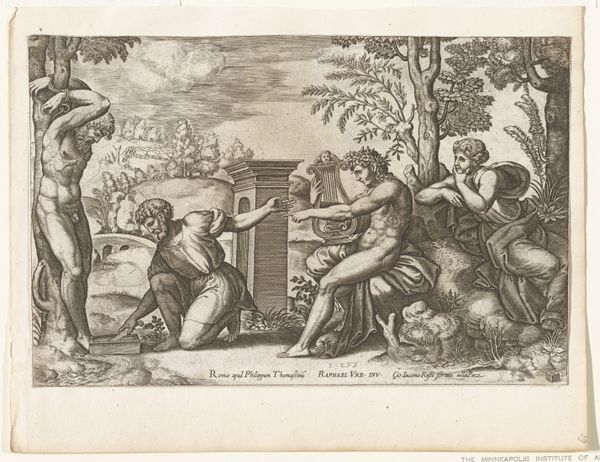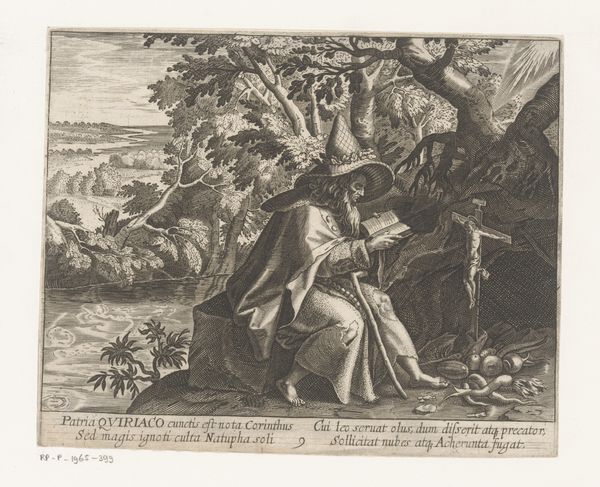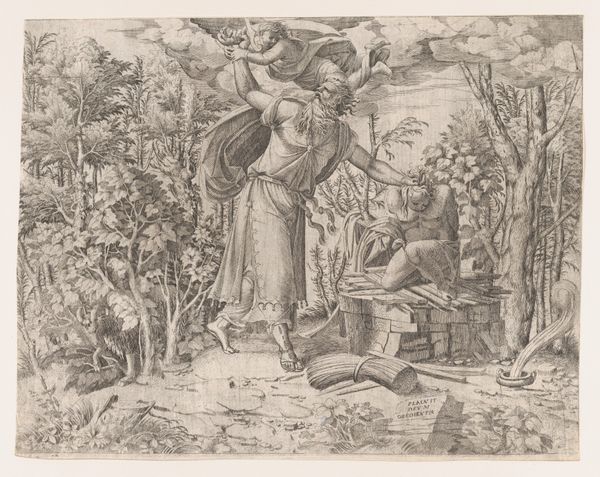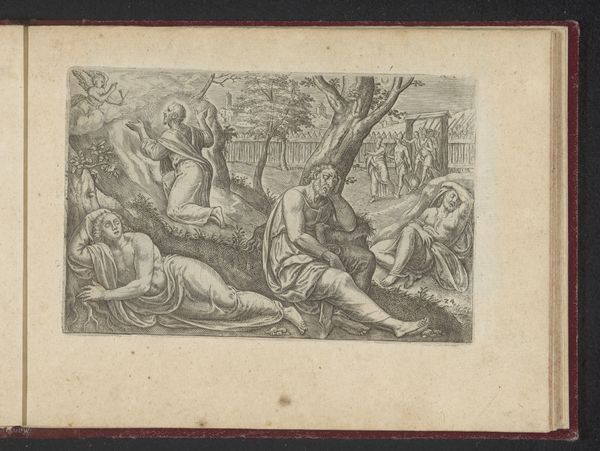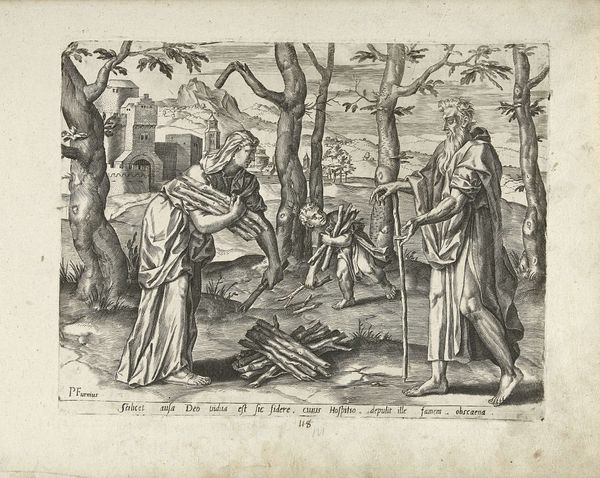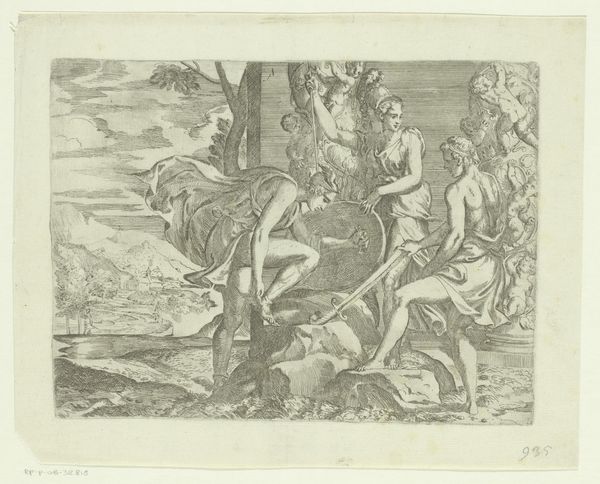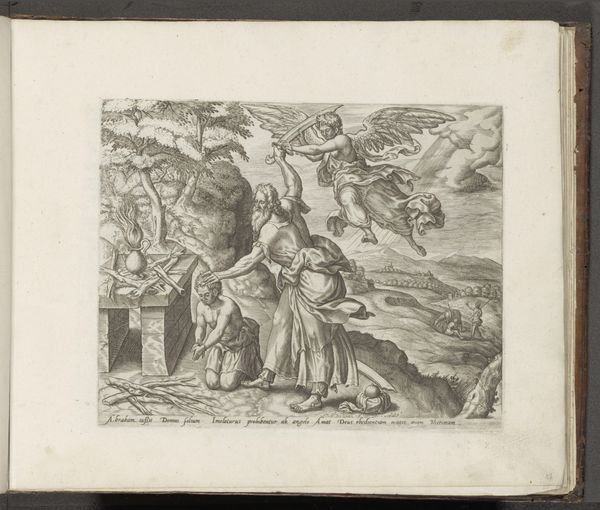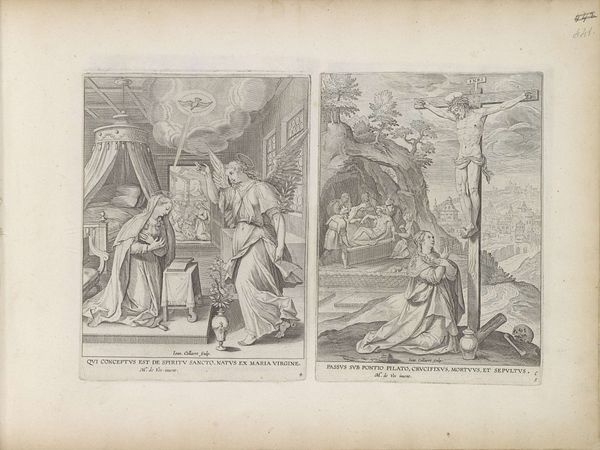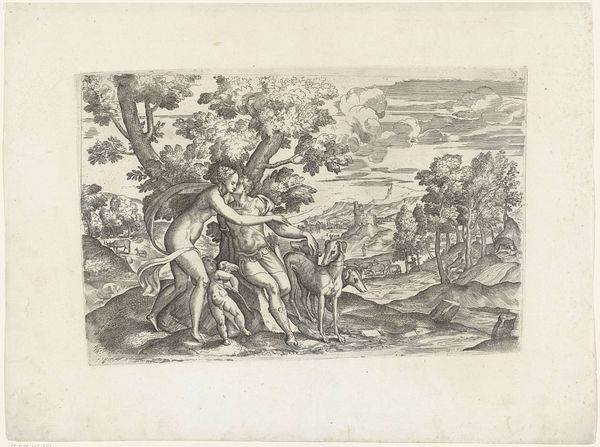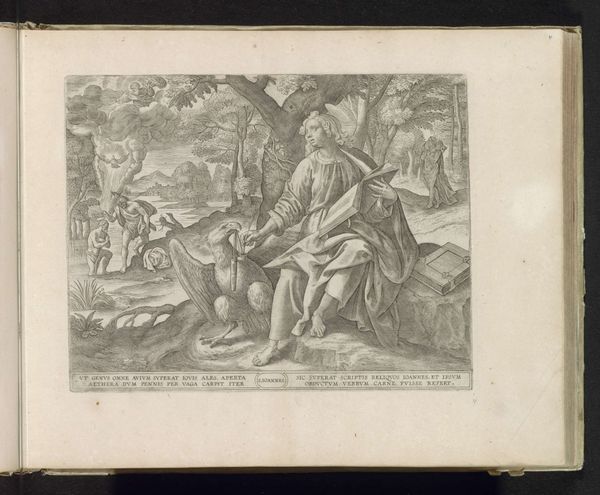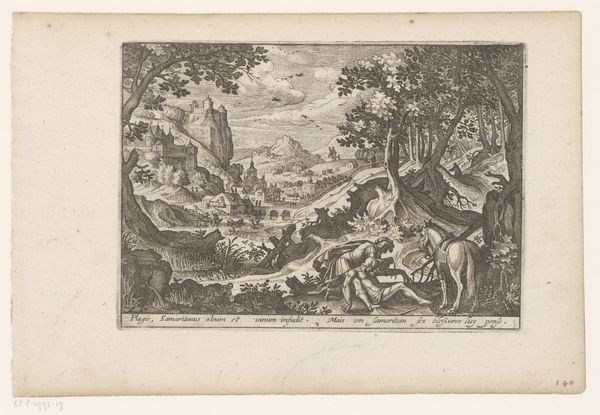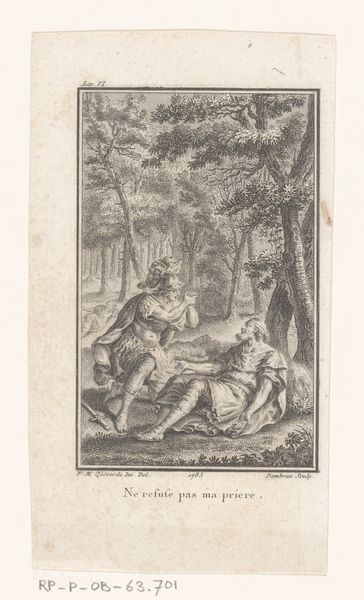
print, engraving
allegory
baroque
ink painting
pencil sketch
landscape
charcoal drawing
figuration
coloured pencil
line
history-painting
engraving
watercolor
Dimensions: height 93 mm, width 150 mm
Copyright: Rijks Museum: Open Domain
Frederik Bouttats created this engraving titled 'Zomer', or 'Summer', sometime between 1600 and 1661. It allegorically represents summer through a female figure surrounded by its bounty. During the 16th and 17th centuries, allegories of the seasons became a popular way to express cultural values and understandings of time and nature. Look at how Bouttats uses a female figure to embody "Summer". She's adorned with fruits and grains, visual cues linking her to fertility and abundance. This representation carries gendered implications, associating women with the nurturing and life-giving aspects of nature. Consider how class is portrayed here: In the background peasants labor under the sun. This juxtaposition highlights the social hierarchy of the time, where the idealized image of summer contrasts with the labor required to produce it. The allegory is a way of understanding the world, but it also reinforces existing social structures.
Comments
No comments
Be the first to comment and join the conversation on the ultimate creative platform.
